Cefn Saeson Quotes & Sayings
Enjoy reading and share 7 famous quotes about Cefn Saeson with everyone.
Top Cefn Saeson Quotes
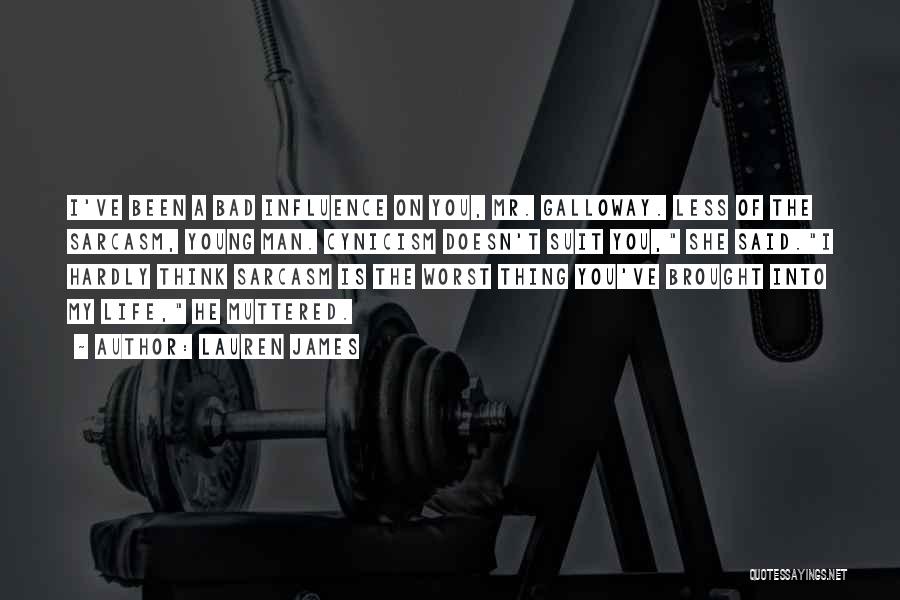
I've been a bad influence on you, Mr. Galloway. Less of the sarcasm, young man. Cynicism doesn't suit you," she said.
"I hardly think sarcasm is the worst thing you've brought into my life," he muttered. — Lauren James
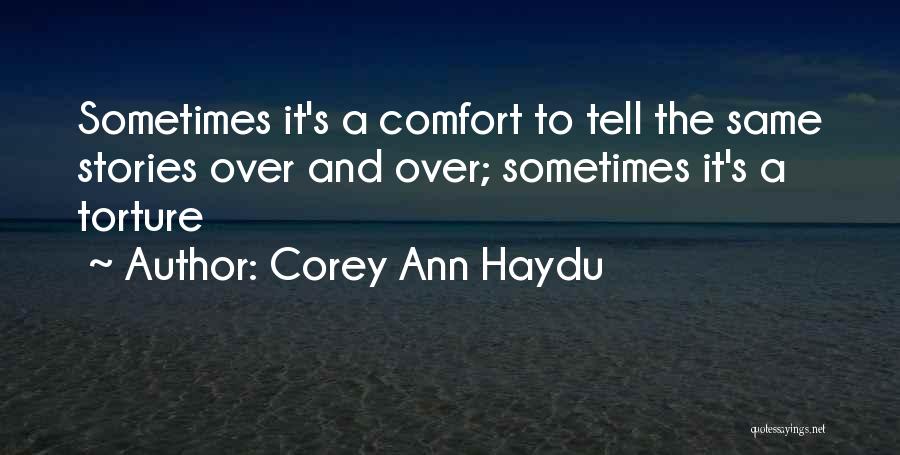
Sometimes it's a comfort to tell the same stories over and over; sometimes it's a torture — Corey Ann Haydu

There is a good reason they call these ceremonies 'commencement exercises'. Graduation is not the end; it's the beginning. — Orrin Hatch
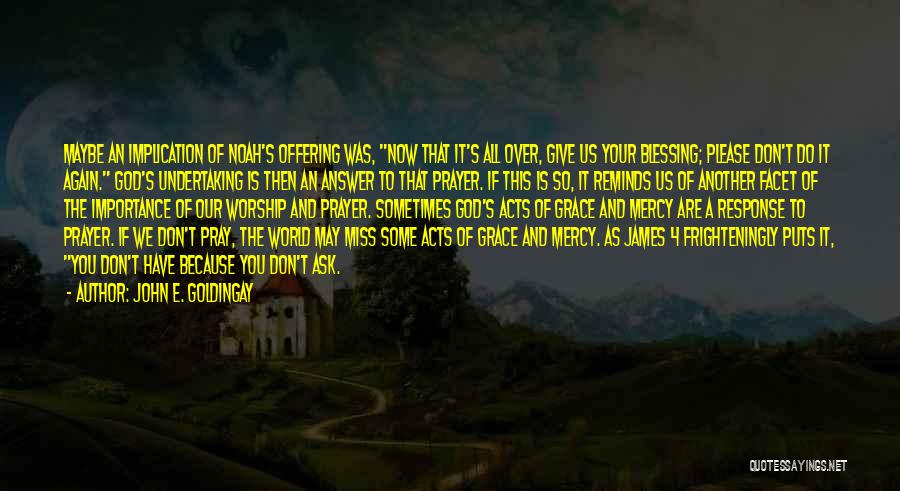
maybe an implication of Noah's offering was, "Now that it's all over, give us your blessing; please don't do it again." God's undertaking is then an answer to that prayer. If this is so, it reminds us of another facet of the importance of our worship and prayer. Sometimes God's acts of grace and mercy are a response to prayer. If we don't pray, the world may miss some acts of grace and mercy. As James 4 frighteningly puts it, "You don't have because you don't ask. — John E. Goldingay
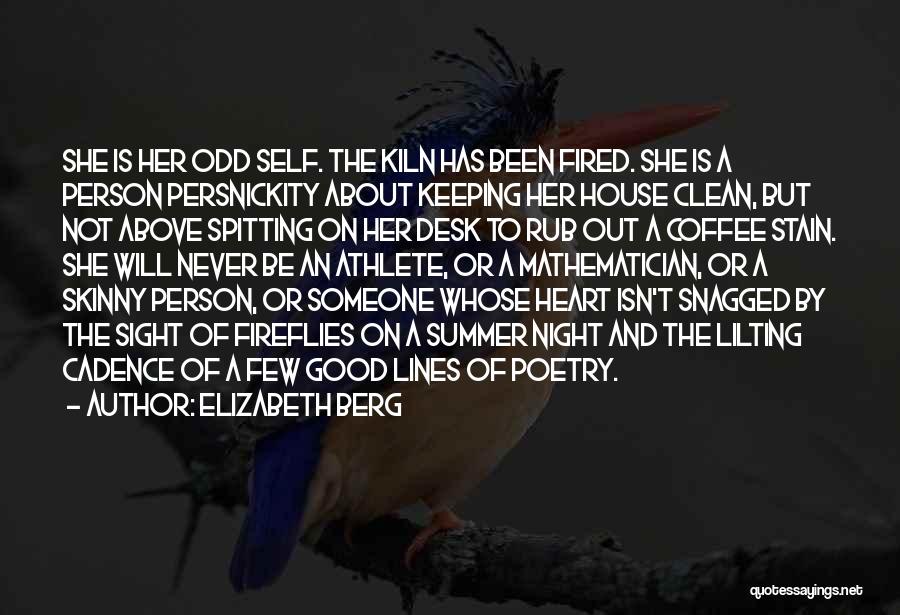
She is her odd self. The kiln has been fired. She is a person persnickity about keeping her house clean, but not above spitting on her desk to rub out a coffee stain. She will never be an athlete, or a mathematician, or a skinny person, or someone whose heart isn't snagged by the sight of fireflies on a summer night and the lilting cadence of a few good lines of poetry. — Elizabeth Berg
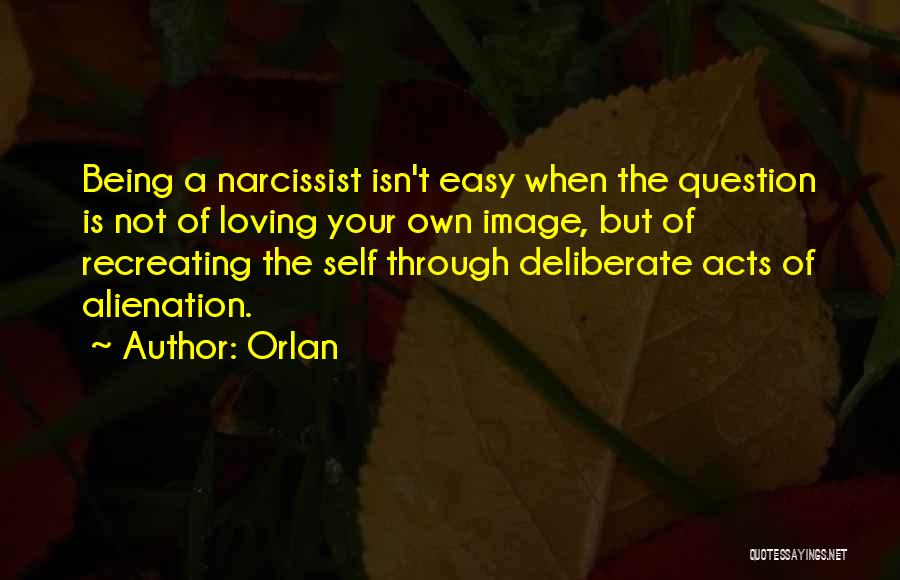
Being a narcissist isn't easy when the question is not of loving your own image, but of recreating the self through deliberate acts of alienation. — Orlan
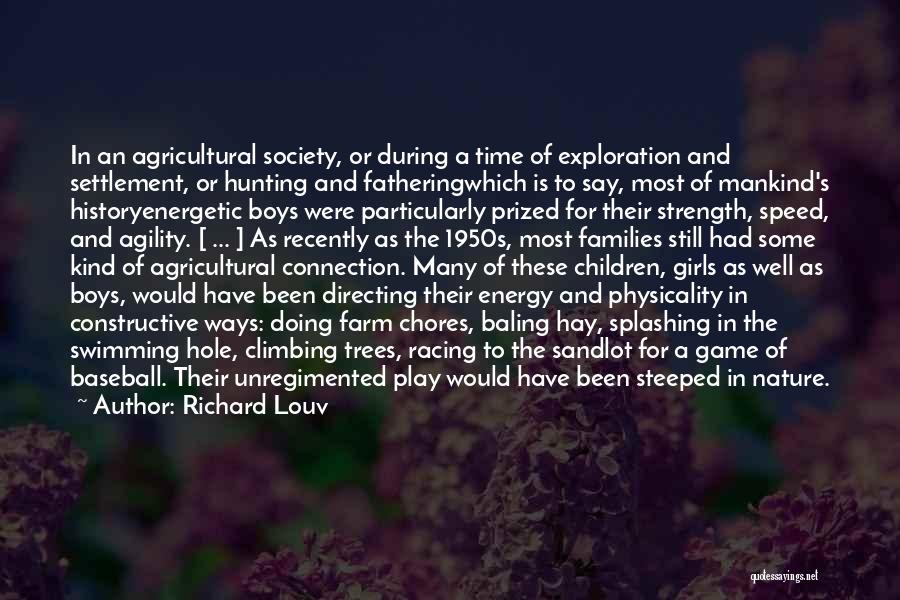
In an agricultural society, or during a time of exploration and settlement, or hunting and fathering
which is to say, most of mankind's history
energetic boys were particularly prized for their strength, speed, and agility. [ ... ] As recently as the 1950s, most families still had some kind of agricultural connection. Many of these children, girls as well as boys, would have been directing their energy and physicality in constructive ways: doing farm chores, baling hay, splashing in the swimming hole, climbing trees, racing to the sandlot for a game of baseball. Their unregimented play would have been steeped in nature. — Richard Louv





